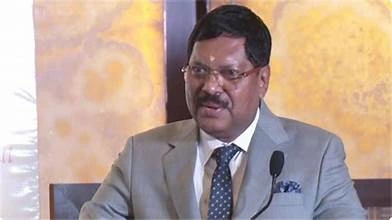Chief Justice of India Justice BR Gavai, during his recent visit to Bhutan, delivered a powerful message on the transformative role of the judiciary, asserting that courts are not merely institutions of law but educators of democracy.
Speaking at the Fifth Wisdom for the Future lecture hosted by the Jigme Singye Wangchuck School of Law at the Royal Institute of Management in Thimphu, the CJI underlined that every judgment should serve as a lesson deepening public understanding of constitutional values and reinforcing faith in democratic ideals.
He observed that the true strength of the judiciary does not stem from its authority to punish or enforce, but from the trust it commands among the people. “The moral authority of courts lies in public confidence,” he remarked, noting that each verdict carries lessons that extend far beyond the litigants involved. A judgment, he said, is not just a legal pronouncement but an instrument of civic education an opportunity to teach society about justice, fairness, and constitutional morality.
Justice Gavai reflected on how courts act as guardians of fundamental rights, arbiters between institutions, and protectors of constitutional order. For a democracy to remain vibrant, he said, the judiciary must uphold transparency, accountability, and reasoned decision-making. “Every judicial pronouncement must be a reaffirmation of our collective faith in democracy and the rule of law,” he stated, emphasizing that the courts’ legitimacy depends not on power but on integrity and moral persuasion.
Drawing on India’s constitutional journey, he highlighted landmark rulings such as Kesavananda Bharati v. State of Kerala, which established the basic structure doctrine, and how such judgments have guided not only India but inspired constitutional discourse across the world. He noted that the judiciary’s mission is to translate constitutional promises into everyday realities turning written rights into lived experiences for every citizen.
Gavai also lauded Bhutan’s constitutional philosophy, describing it as a nation that beautifully balances modern governance with traditional wisdom. He praised Bhutan’s commitment to Gross National Happiness as a model of governance with purpose and compassion. “Bhutan stands as a living testament to what an ideal civilisation can aspire to be a harmonious blend of culture, values, and progress,” he said.
In his address, the CJI called for greater cooperation between India and Bhutan’s judicial systems, stressing that regional collaboration rooted in shared values could strengthen both democracies. He encouraged continuous dialogue, exchange of ideas, and judicial learning to promote justice and sustainable governance in the region.
Justice Gavai concluded with a reminder that judges carry a profound responsibility—not only to resolve disputes but to guide society through their words and wisdom. “Every judgment should educate. Every reasoning should illuminate. The judiciary must continue to be the conscience-keeper of democracy,” he said.
His speech resonated as a reaffirmation of the judiciary’s larger purpose: to act as both a guardian and a teacher of the Constitution shaping not just the law, but the moral imagination of a democracy itself.


